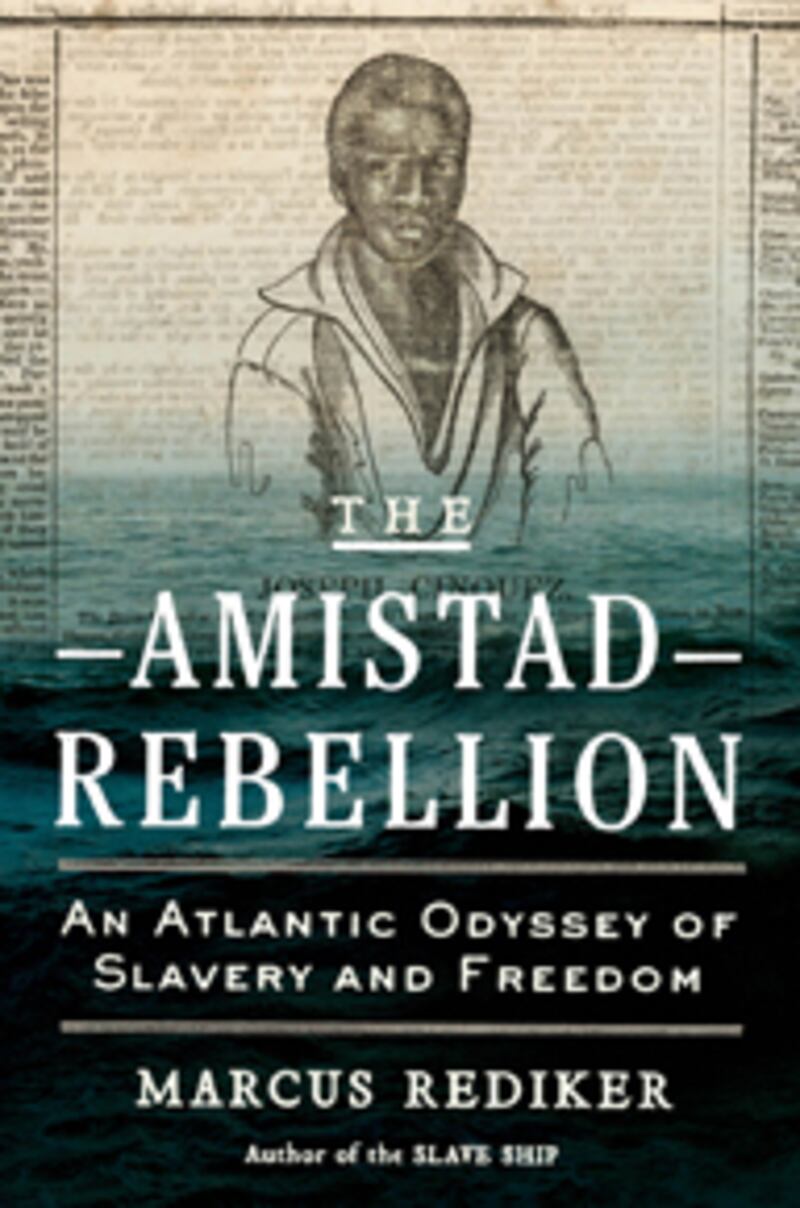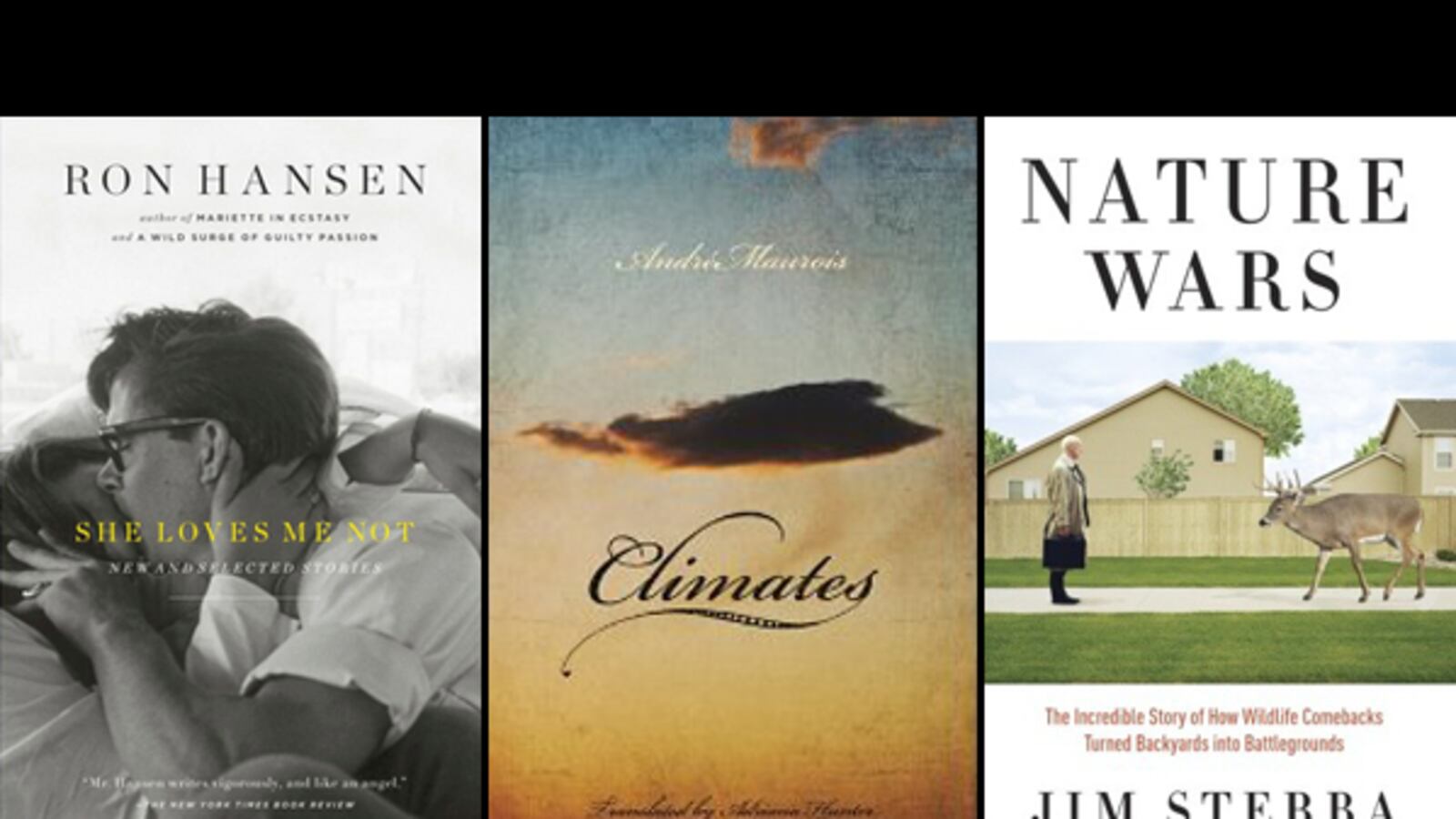Climates By André Maurois, translated by Adriana Hunter
A new translation of the bestselling 1928 French novel about a bourgeois man’s quest for the right atmosphere for love.

Written in 1928 by French historian André Maurois, this semi-autobiographical novel chronicles the two marriages of Philippe Marcenat, a bourgeois paper-mill owner whose appetite for romance proves to be incompatible with his own happiness. Marcenat’s first love, the delicate beauty Odile, “more of a spirit than a woman,” is a prototypical “manic pixie dream girl.” She favors wispy white dresses and can spend hours arranging flowers. Her childlike delight in the world and occasional melancholic outbursts captivate Marcenat completely. But her aura of mystery and capricious habits unsettle him, too, and Marcenat discovers Odile having an affair. Marcenat’s second wife, Isabelle, is practical, sensible, modest, and loyal; this time, however, it is Marcenat who is flitting and unfaithful. This new translation by Adriana Hunter fully captures the elegance and frivolity of its era. It artfully preserves timeless questions about the nature of love, too. Marcenat may not be a sympathetic character, but his quest for the right “climate” for love shows the approach to be just as problematic nearly a century later.
Nature Wars By Jim Sterba
A careful examination of wildlife preservation techniques past and present that clarifies the origins of many of today’s conflicts.

Wild turkeys circling ominously around children’s playgrounds, geese lording over public picnic benches, bears rooting through the trash, and beavers flooding basements—these are just a few of the menaces Jim Sterba details in this thoughtful historical consideration of the clashes between wildlife and suburban life in America. Sterba argues that most common assumptions about what constitutes “wild” are oversimplifications; even when they lived in the “wild,” the country’s Native American residents and earliest white farmers and settlers changed and shaped the landscape in ways that continue to have an impact on the land today. At times, Sterba’s obsessiveness works against him. He devotes an entire chapter to taking down the suburban bird-feeder, a contraption he argues is “not beneficial to either birds or their environment.” He also rails against “rich and powerful feral cat advocacy groups”—one imagines Jonathan Franzen’s bird-crusading hero Walter Berglund violently nodding in agreement as Sterba notes that cats kill 8 million birds a year in Wisconsin alone. Even when man and beast’s confrontations go horribly awry, it’s hard to identify clear, consistent villains. Most of the time, it seems that misguided efforts, misunderstandings, and miscommunication are the real source of trouble; the modern American simply has no idea how to balance his or her own demands on the land with those of the feathered and furred creatures who inhabit it, too. Sterba’s careful examination of wildlife preservation techniques past and present succeeds in clarifying the origins of many of today’s conflicts—and identifying how they might be intelligently avoided in generations to come.
She Loves Me Not By Ron Hansen A collection of short stories 20 years in the making and featuring experts in getting by.

The hardscrabble characters of Ron Hansen’s new collection of short stories (more than two decades in the making) are experts in getting by. But even if certain themes and a brooding mood prevail, each story operates entirely on its own terms. There’s the kooky dark humor of “My Kid’s Dog,” which finds an exasperated father eager to do away with an annoying pet, and then the unhinged black comedy of the title murder-love story “She Loves Me Not.” Middle-class desperation simmers artfully in “Can I Just Sit Here for a While?”; meanwhile, “The Sparrow,” which watches two young children coming to terms with their mother’s sudden death, commands respect with its sheer emotional power. As if testing his own versatility, Hansen dabbles with the surreal in “Wilderness,” where an account of a professor’s research trip to Mexico blurs with his wife’s activities back in New York and makes the seductress of “A Hazard of New Fortunes” a perfectly tanned woman with a washboard stomach and a misshapen Thalidomide arm. If there’s a single star of this collection, however, it’s “Wickedness,” Hansen’s account of a devastating 1888 snowstorm that hit Nebraska. Hansen illustrates the luck and logic, good and bad, that saw each resident of the town through the storm or lead to their demise. It’s a chilling examination of the surprising ways fate and character intersect.
The Amistad Rebellion By Marcus Rediker
An uprising on a slave ship that was more than a parable of history—it was a bid for freedom in uncharted waters.

It’s an episode of history made for the movies: the “cargo” of a slave ship rises up in a violent rebellion, demanding to be returned home to Africa by the only men who know how to navigate the ship: their captors. The white captains promise to turn the vessel around but manage to successfully stall until the U.S. Navy captures the ship, throwing the rebels into jail and launching a trial that makes its way to the Supreme Court. This new history traces the Amistad Rebellion in extensive detail. It covers the legal proceedings showcased in Steven Spielberg’s Amistad and charts the men, women, and children on that boat before their capture, when they lived in their homes in southern Sierra Leone. It also follows them after the trial, when they attempted to reclaim their lives. Weaving together an array of first- and second-person accounts and archival documents, Rediker paints a rich picture of the individuals at the heart of rebellion. In Rediker’s telling, the rebellion is more than a parable of democracy and justice in action. It’s a raw story about navigating a bid for freedom in uncharted waters.
Selected Letters of William Styron Edited by Rose Styron and R. Blakeslee Gilpin
Correspondences by the author of ‘The Confessions of Nat Turner’ and ‘Sophie’s Choice’ showcase his humility and kindness.

William Styron’s widow, Rose Styron, has compiled six decades of letters written by her husband. Styron’s correspondents include his father, his daughter, his mentor at Duke University, William Blackburn, and friends like Robert Penn Warren and Carlos Fuentes. The letters are delightful for their lively renditions of ordinary events, light-hearted anecdotes and heartfelt discussions of literature. To Paris Review editor George Plimpton Styron writes of falling in love with a 15-year-old on the Cote d’Azur. To Norman Mailer he cheerily advises, “Anyway, Norm, I shouldn’t worry about the ‘fundamental poverty of imagination’ you assign to yourself; that’s the kind of talk I indulge in.” One early letter to Dorothy Parker (“Dearest little crumpet”) notes, “I saw T.S. Eliot in the subway this morning…with a kindly, sad face and a sort of melancholy stoop.” To a friend from the Marine Corps Styron describes his own novel in progress as something that “will appeal mainly to the discontented middle-class matrons who make up the bulk of our reading population anyway, but parts of it are really O.K.” In a later letter to Philip Roth, he makes pornographic jokes about Roth’s mustache. Beneath the banter and erudition, though, a generosity of spirit shines through, as in the earnest reply Styron makes to an elderly schoolteacher in Maine dying of cancer. Citing a short Bible passage, Styron concludes, “I am moved to a belief in the eternal, in which one’s death is only a necessary part of the great design.” In the simplicity of those words, it’s impossible not to be moved to believe in the humility and kindness of Styron himself.






